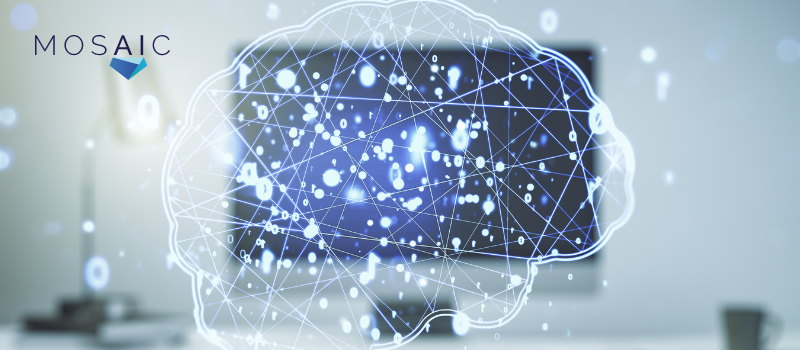Welcome to Mosaic‘s feature with specialist contributions from School entrance tests and Rob Williams Assessment,
Machine Learning and AI career guides
Machine learning is a method of data analysis and a field of artificial intelligence. It involves automating analytical data building and uses statistical techniques to give computer systems the ability to “learn” from data without being programmed to do so.
The term machine learning was coined in 1959.
Machine learning looks at the study and creation of algorithms that can learn from and make predictions on data.
Machine learning is closely associated and often overlaps with computational statistics. Both focus on prediction-making through the use of computers. With strong ties to mathematical optimization and often combined with data mining. However, data mining focuses more on exploratory data analysis and is known as unsupervised learning.
The analytical models produced by machine learning give analysts, data scientists, engineers and researchers the opportunity to “produce reliable, repeatable decisions and results” and uncover “hidden insights” through learning from historical relationships and trends in the data [1].
What is AI and what does an AI Specialist do
AI refers to Artificial Intelligence and is when machines show cognitive functions associated with humans like learning and problem-solving. It is seen as a branch of computer science that focuses on creating intelligent machines. AI has, therefore, become an essential part of the technology industry.
It is subsequently clear that a central part of AI is machine learning as it requires the ability to spot patterns and react to unexpected data on its own.
The main focus of an AI specialist is therefore to program computers to ‘understand’ a variety of situations. One of their roles would, therefore, be to program computers to test theories in relation to how the human mind works.
An interesting comparison between AI and machine learning would help to explain this.
So what does a day in the life of a Machine Learning or AI Specialist look like?
Machine learning is the future and AI has become the buzzword. Articles and debates are popping up just about everywhere. Focusing on both the threats and opportunities created by this dynamic field. There isn’t really a typical day as the role can be so varied. It would include traditional software development, reading academic papers and catching up on developments in the field.
According to this Artificial Intelligence Specialist skills profile from the Career Services of Edinburgh University, AI and machine learning are currently used in the following fields:
- Medicine
- Robotics
- Engineering
- Software engineering
- Interfaces and ‘help’ systems
- Information management
- Entertainment
- Architecture
- Crime prevention and detection
- Commerce
- Space
- Military activities
- Finance
- Telecommunication
- Marketing
Skills and responsibilities of a Machine Learning and AI Specialist
A machine learning AI specialist will need to have a variety of skills. Here are some of the most important ones:
- Outstanding analytical and problem-solving skills
- Attention to detail
- Understanding a probabilities and statistics
- Applied Math and Algorithm understanding
- Excellent project and time management skills
- MA or PhD in Computer Science or similar relevant fields
- Lifelong learning
Qualifications
Most AI specialist roles require at least a master’s degree or a PhD in computer science or a related field. Others may only require a degree and look for more practical experience in a relevant IT role.
Salary expectations for a machine learning or AI specialist
According to IT Jobs Watch, the UK median annual salary for someone working as an AI specialist is around £62 500 as of November 2018. This has shown a 5% increase from last year at the same time with an even bigger (25%) jump from 2016 to 2017. Although there weren’t as many AI positions to compare this to in 2016, the growth of this profession is clear.
Finding employment as a machine learning or AI specialist
Finding employment in AI is much easier than it once was as many roles have been created within this field through its growth in this field.
Learning AI Career guide: LinkedIn Learning – How to become an AI specialist

